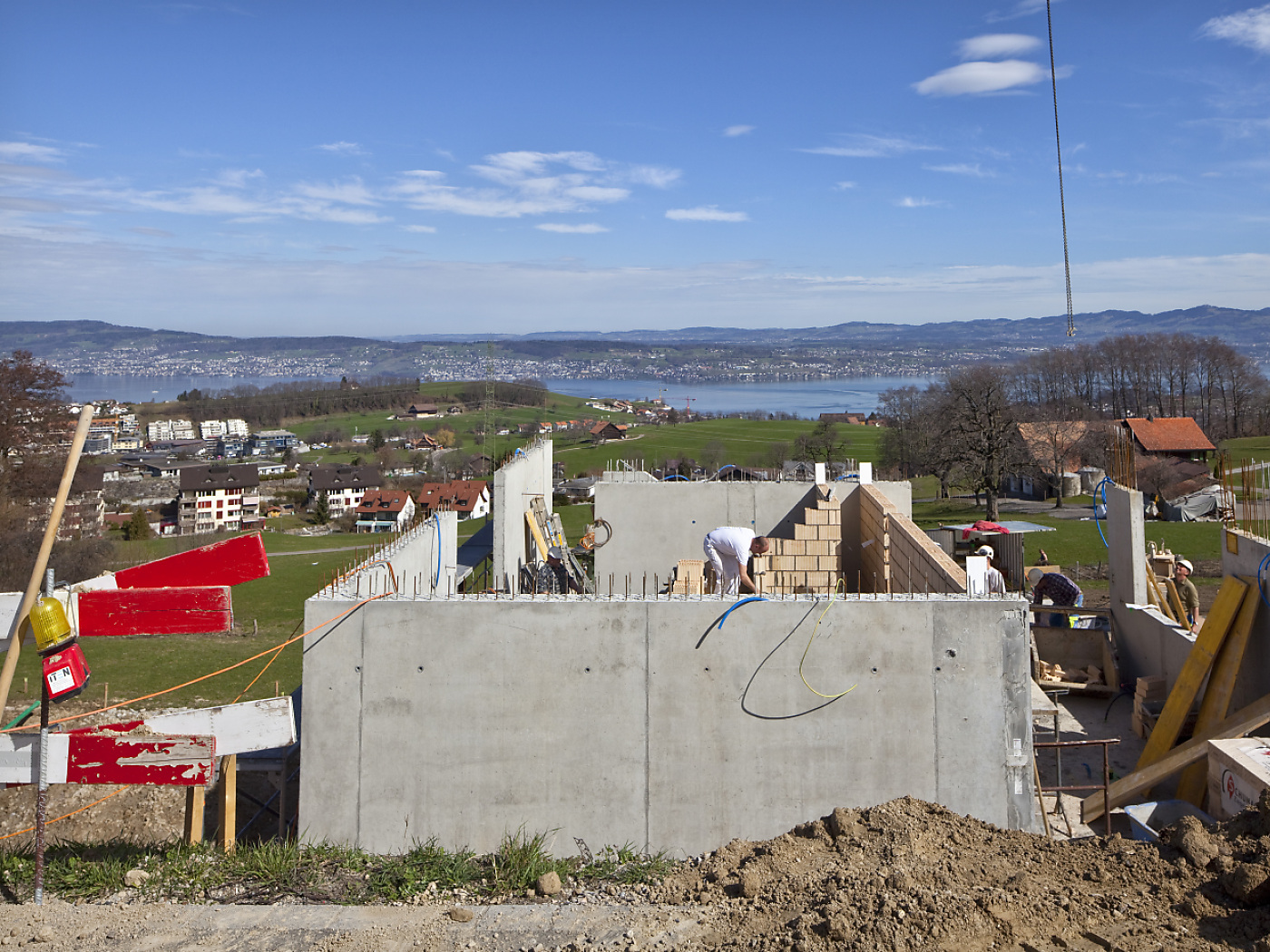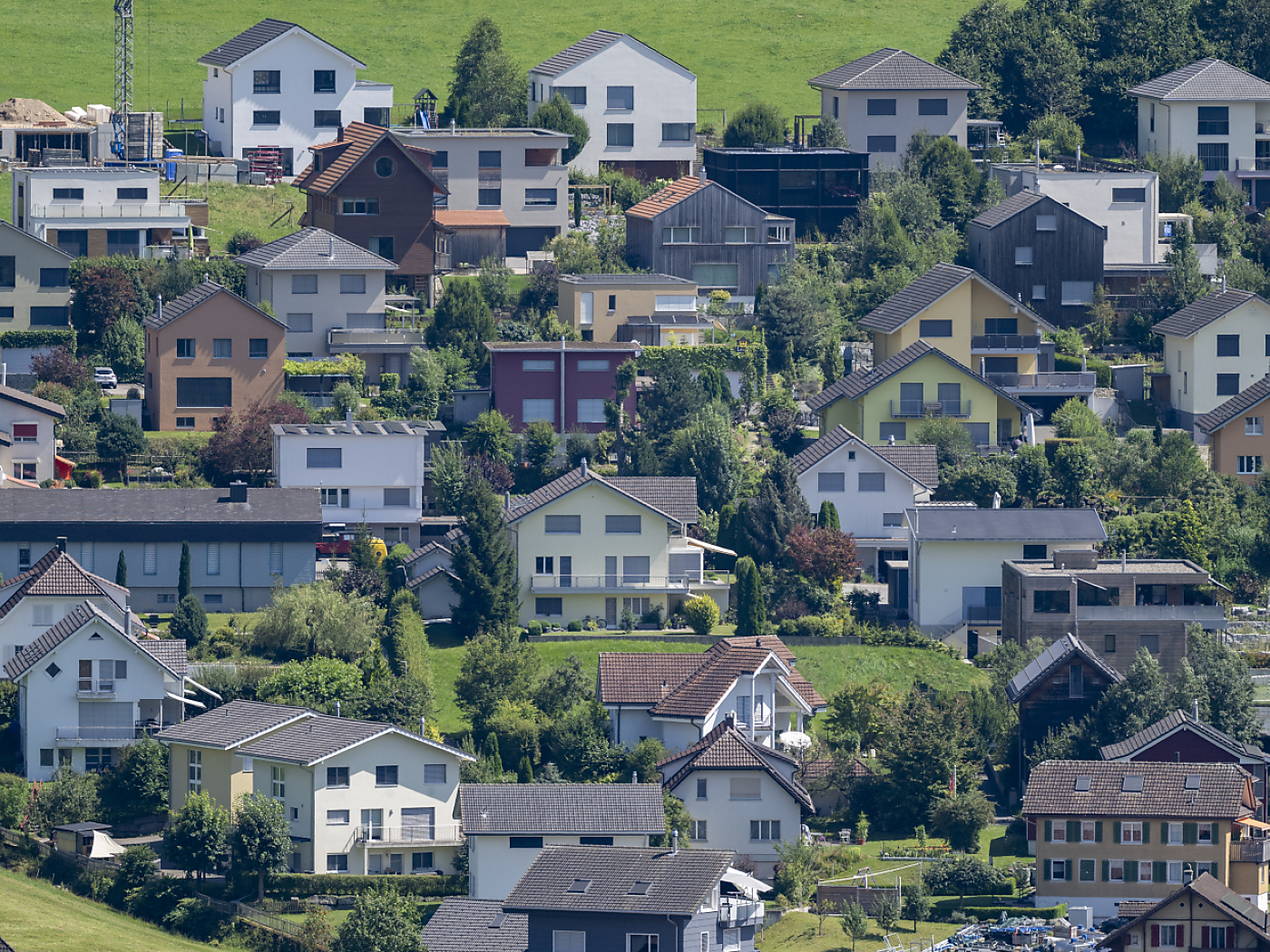
Swiss residential real estate to remain in demand in 2025

Swiss residential property and investment properties are likely to see strong demand next year.
+Get the most important news from Switzerland in your inbox
Lower interest rates and a stable economy will boost demand for residential property, while the market for apartment buildings should also develop positively, according to a study by Fahrländer Partner Raumentwicklung (FRPE).
+ Central Bank reduces Swiss interest rates by 0.5%
The office and retail real estate segment is proving more difficult. Despite very high prices, demand for residential property in Switzerland remains high, according to a press release issued by FRPE on Friday on the outlook for the Swiss real estate market in 2025.
This is partly due to the fall in mortgage interest rates and the expectation of even lower interest rates. These developments have increased the relative attractiveness of home ownership compared to renting an apartment.
While the risk of a correction on the stock markets is increasing and bond yields are falling, real estate is likely to become more attractive as an asset class, the report continues. In the case of apartment buildings, the time of interest rate-related devaluations is over.
Demand is increasing again thanks to falling interest rates and rising rental income. At the same time, construction activity remains weak for the time being. Positive returns on capital appreciation are therefore expected. This makes real estate an attractive asset class once again.

More
Wealth is not all: how gentrification in Zurich has led to housing shortage
Subdued demand for offices
In contrast, demand for office space remains subdued, the report continues. This economically sensitive market is feeling the effects of the current uncertainties in particular. However, according to Fahrländer Partner Raumentwicklung, the office market is generally being talked down.
Here, the quality of the location and property are much more decisive for letting opportunities than in the residential market. Suitable office properties have always “worked well” and are likely to continue to do so. In contrast, the letting prospects for space in less good locations are only given at all in times of economic boom.
In the retail property sector, the signals are mixed; consumer sentiment is very important here. Although this has recently recovered slightly, it is still below the long-term average. Growth in consumption is primarily driven by the rising “number of heads”, i.e. population growth, and not by rising demand from individual consumers.
Properties in A locations are therefore likely to be in demand and rents in tourist communities are likely to rise. In contrast, the picture in B and C locations is likely to be characterized by increasing fluctuation vacancies. All in all, the positive factors could therefore slightly outweigh the negative ones.

More
Swiss property market shows no signs of correction
Translated from German by DeepL/mga
This news story has been written and carefully fact-checked by an external editorial team. At SWI swissinfo.ch we select the most relevant news for an international audience and use automatic translation tools such as DeepL to translate it into English. Providing you with automatically translated news gives us the time to write more in-depth articles.
If you want to know more about how we work, have a look here, if you want to learn more about how we use technology, click here, and if you have feedback on this news story please write to english@swissinfo.ch.

In compliance with the JTI standards
More: SWI swissinfo.ch certified by the Journalism Trust Initiative

























You can find an overview of ongoing debates with our journalists here . Please join us!
If you want to start a conversation about a topic raised in this article or want to report factual errors, email us at english@swissinfo.ch.